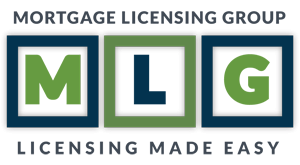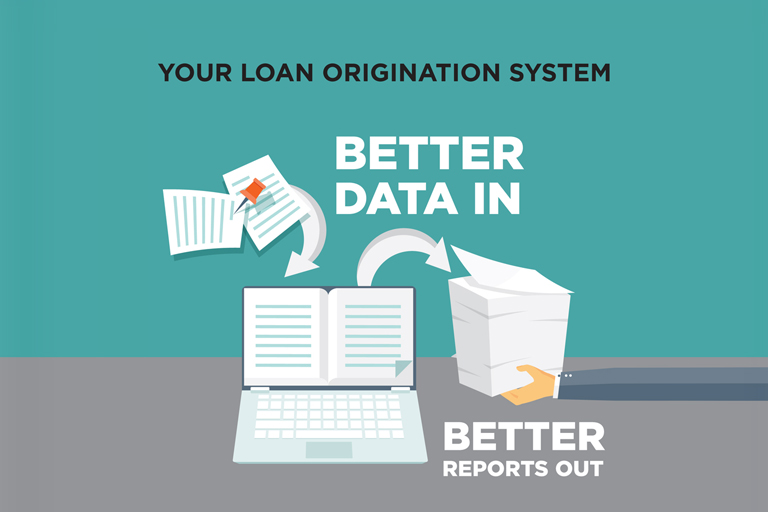Loan Origination Systems Part 2: Better Data, Better Reporting
How Maintaining Accurate Information Leads to Quality Reporting and Reduced Risk
In part one of our two-part series on LOS Systems titled, “Garbage in Garbage Out”, we highlighted their importance in the mortgage banking industry, defined their scope and the great many ways they have positively impacted the mortgage lending and loan origination environments. From efficiency, to customer satisfaction, to record retention, it’s quite apparent that LOS systems are powerful, but they are still only as effective as the people who interact with them and the data that is entered.
That is why, in this follow up article, we’ll spend time examining the built-in compliance mechanisms of LOS systems and how they help protect mortgage companies. Additionally, we’ll provide insight into the need for self-regulated processes and policies that ensure data integrity that further reduce risk.
So, let’s roll up our sleeves and continue on making our case for why it is in every mortgage company’s best interest to invest the time and energy into developing standard protocols that minimize errors and ensure the quality and accuracy of the data that is added to their LOS.
How Vital is Accurate Information?
Just ask a lender who has been fined or lost their ability to lend due to a failure in accurately complying with the reporting regulations. Lenders and Brokers alike are required to comply with a large number of federal and state laws and regulations. These laws are in place to protect consumers from predatory and discriminatory lending practices. In addition, they seek to ensure borrowers are treated fairly and equally throughout the process. Several major laws requiring accurate reporting and data collection, include:
- Truth in Lending Act (TILA): This act was passed, requiring lenders and brokers to provide easy-to-understand loan information to all borrowers so they can compare loan terms and interest rates when selecting the right loan.
- Real Estate Settlement Procedures Act (RESPA): Ensures that mortgage lenders, brokers, and servicers provide a complete breakdown of settlement costs with written disclosures.
- Secure and Fair Enforcement for Mortgage Licensing Act (SAFE): Mandates a nationwide licensing and registration system for all residential mortgage loan originators. Its purpose is to increase accountability and provide more consumer protection.
- Home Mortgage Disclosure Act (HMDA): This law requires that mortgage lenders and brokers accurately collect and report data about home mortgage loans.
This list represents several major federal laws that rely on accurate information to be provided to federal entities or the consumer directly. A failure to provide accurate information can result in the suspension or loss of the lender’s credentials, stiff penalties and fines, and potentially even jail time if there is malicious intent in misreporting.
In 2010, the Dodd-Frank Wall Street Reform and Consumer Protection Act created the Consumer Financial Protection Bureau (CFPB). This agency has three primary missions, which include:
- To create rules for the financial services industry in a way that implements the law and helps maintain choices for consumers.
- To supervise financial services companies and ensure they comply with federal laws related to consumer financial protections.
- To enforce the laws by investigating predatory or illegal practices by financial services companies and obtaining compensation for consumers who illegal practices may harm.
As part of its role as an oversight agency, the CFPB can investigate records and levy penalties against companies that have broken federal law. And while this law may seem to only apply to companies that engage in intentional violations, it is possible that inaccuracies in a company’s data could lead to punitive actions.
In addition to federal oversight of finance related lending and brokering practices, most states have their own reporting requirements and regulations. Even some cities and counties have local rules. As you can see, the industry is often governed by a patchwork of local, state, and federal laws.
A violation of any of these laws introduces the risk of penalties and fines for your company.
How Do Loan Origination Systems Help with Reporting and Compliance?
Considering the fact that loan origination companies are the only reason LOS platforms exist, it should be no surprise that it’s in their best interest to build in safeguards to ensure their customers stay in business. And, although this is a primary advantage offered by modern LOS systems it is also commonly underappreciated due to the vast revenue generating aspects these systems provide.
As these systems evolve to offer greater automation, reporting, and other functionality features, mortgage lending professionals can expect their LOS system providers to implement updates to help ensure compliance with all regulations, helping you avoid costly penalties and fines.
These features include:
- Support for new and changing regulations: with mortgage lending laws frequently changing at local, state, and federal levels these platforms must maintain the agility to keep current.
- Confirmation tools: to monitor lending activities and provide evidence that your company meets regulatory and compliance guidelines.
- Providing supporting documentation: As data repositories, LOSs can give you a clear picture of any specific loan by allowing you to link to all relevant documentation. This feature may be necessary if your company is ever investigated.
While these compliance features may be beneficial, it’s still important to remember that they only work when all the required data is entered and accurate. For this reason, many companies adopt self-regulated processes and policies to flag inaccurate data and double-check data for accuracy.
Just like the old saying “an ounce of prevention is worth a pound of cure”, investing the extra time to verify the accuracy of your data is an investment in minimizing the risk of compliance violations. We have compiled our Top 10 MCR errors list to help guide you in the development of processes that aid in self-auditing your LOS system data and MCR preparation activities. Click here to view or download our top 10 MCR errors list.
Ways To Ensure Compliance with License Maintenance?
Establishing a license maintenance protocol with the Mortgage Licensing Group provides an extra layer compliance support required to ensure your ability to keep your mortgage company up to date and on track with state and federal regulatory guidelines and reporting.
Because of the frequency and random nature of changes in mortgage laws and regulations, which can often be in depth and complicated, it is advisable to partner with a highly effective mortgage licensing firm, like MLG, who will help you navigate the evolving changes related to regulations.
Discover the benefits of MLG’s licensing services and cover your assets with help from trusted licensing professionals.
Have questions? Give us a call at 1(866) 576-7726
The Mortgage Licensing Group, Inc. is a full-service mortgage licensing firm headquartered in Southern California that is recognized throughout the industry as an experienced and reliable service provider. Established in 2006, our company has been at the forefront of the ever-changing rules and regulations, helping alleviate the often-daunting task of meeting our clientele’s diverse state licensing requirements.

